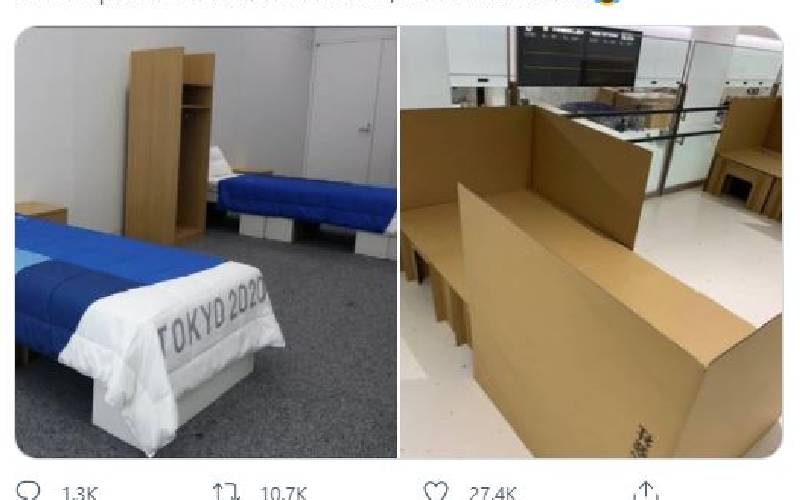×
The Standard e-Paper
Stay Informed, Even Offline

A screenshot of the flimsy cardboard beds as shared on social media.
The claims circulating on social media that athletes in the Olympic Village are using 'anti-sex beds' to discourage them from any contact that could spread coronavirus are false.